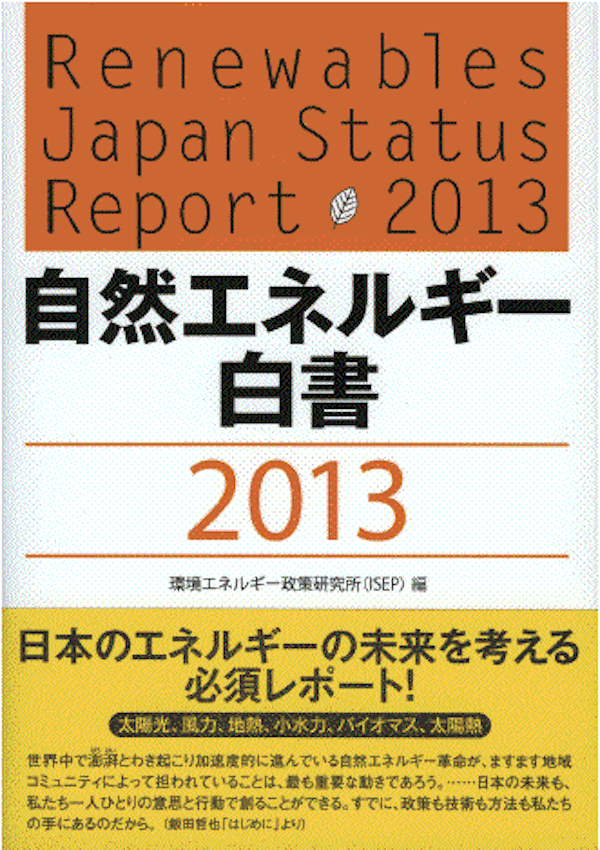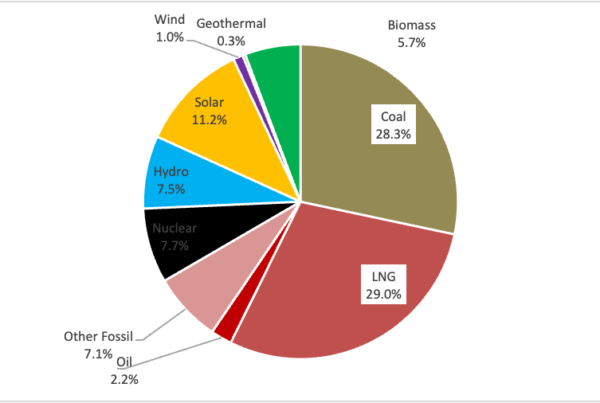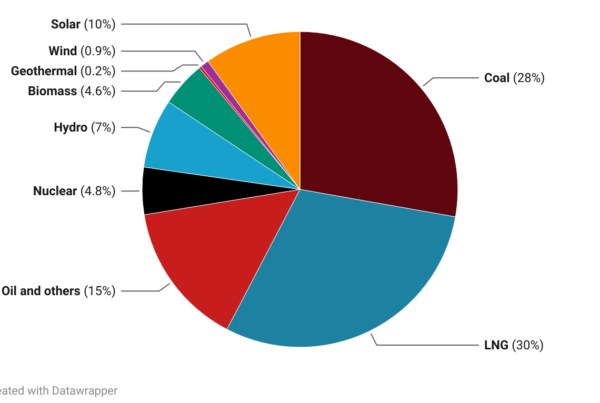ISEP published “Renewables Japan Status Report 2013”. Executive Summary in English is available in PDF.
Renewables 2013 Japan Status Report, Executive Summary
The severe nuclear disaster at Fukushima Daiichi nuclear power plant, caused by the huge earthquake and the massive tsunami in March 11th, 2011, brought about controversies over the safety of nuclear power plants. Uncertainty about the safety of nuclear power, as well as energy security issues have caused widespread reconsideration of demand-side management, energy efficiency, renewable energy, electrical liberalization and unbundling transmission from power production. Fig.1 shows trends of power generation in Japan from FY1990 to FY2012 (in FY2012, forecast by ISEP). The portfolio of power generation was drastically changed after the Fukushima Nuclear accidents. The Ministry of Economy, Trade and Industry has organized committees to discuss the current energy market system and the need for its reformation, especially when major electric utility companies are monopolizing the market. The decision to reform the current energy market is expected to take place around the spring of 2013, and if changes are made measures will be implemented by the end of 2013.
Renewables have been receiving widespread recognition as a promising future sustainable energy source, substituting fossil fuels and nuclear power. The rapid increase in the implementation of renewable energy is said to be “the fourth revolution” following industrial, agricultural, and IT revolutions. Renewables can be considered as a precious domestic sustainable energy source, especially for Japan with its current energy self-sufficiency rate of as little as 5%. With the rising price and unpredictability of imported fossil fuels, and the tremendous risks of operating nuclear power plants, which were unfortunately inevitably proven at Fukushima, it is an obvious decision for the nation to place renewables as the primary means of energy supply in the near future.
In addition, well-arranged renewable projects, particularly those of solar power generation, can be implemented within a relatively short time frame; therefore, introducing renewables will play an important role as a post-disaster recovery measure, as well as contribute to energy security and global warming prevention. One of the positive characteristics of renewable technologies is that the performance improves and price declines as they become more popularized. In other words, the next decade in comparison to the last decade will witness a much faster popularization and a dramatic price decrease of renewable technologies.
From now on, the respective regions of Japan are expected to adopt an energy policy that focuses on small scale and dispersive located renewables not only so as to make it a mainstay of post-disaster economic recovery but also to realize a potential society of 100% renewable energy. This will be achieved through a drastic and strategic energy shift aiming at supplying stable and self-sufficient energy, while at the same time mitigating global warming.






